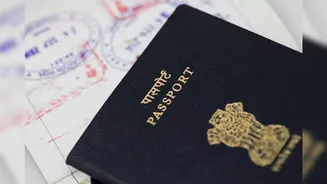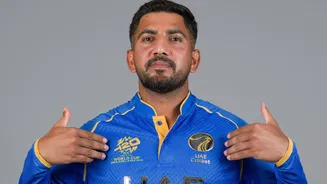Meet Debajit Ghosh, a dedicated educator who undertakes a daily 150 km journey to reach his school in Assam’s tea gardens. Navigating through the challenging terrain of Dihing Patkai National Park, where
elephant crossings and muddy roads are common, the 34-year-old remains steadfast in his mission to teach children who previously had to drop out after primary education, reported Indian Express.
Despite the exhausting commute, Ghosh chooses to live in Dibrugarh to efficiently manage developmental work at Namsang Tea Estate Model School. He brings along two other teachers in his car, while the rest travel by bike since there is no direct public transport to the school.
His dedication has earned him recognition among 45 teachers who will receive the National Teachers’ Award 2025 from President Droupadi Murmu on September 5. Ghosh’s journey from a small town in Assam’s Sonitpur district to national acclaim showcases resilience, innovation, and the belief in the transformative power of one teacher.
Beginning his career in 2013 at Dibrugarh Bengali High School, Ghosh encountered a pivotal moment with Abhishek, a Class 8 student who struggled with science due to a dislike for writing. Through mentorship, Abhishek improved significantly, scoring 100 in Science and 93 per cent overall in the Assam board Class 10 exam. Now, Abhishek has developed a deep interest in science and is pursuing a PhD in Mathematics despite financial challenges. These experiences reinforced Ghosh’s belief in nurturing curiosity over merely focusing on marks.
As the principal of Namsang Tea Garden Adarsha School, established in 2022, Ghosh has helped children from tea garden communities access secondary education. In two years, the school has brought over 300 out-of-school children back to classrooms, the report added.
Previously, children had to leave school due to the absence of nearby secondary schools and the risky route through Dihing Patkai National Park. For the first time, children from the tea gardens had access to secondary education nearby. In the first year, 271 students enrolled, increasing to 326 by the second year.
He promotes hands-on learning through experiments, toy-making, and practical sessions, integrating technology through ICT tools, virtual labs, and 3D websites. Students today are tech-savvy. If you deliver monotonous lectures, they will never listen. But if you show them concepts interactively, they engage with joy.
His impact extends beyond classrooms. Under the Rashtriya Bal Swasthya Karyakram (RBSK), he organised a health camp, addressing students’ low haemoglobin levels through iron and folic acid tablets and deworming treatments. Within three years, haemoglobin levels improved significantly.















